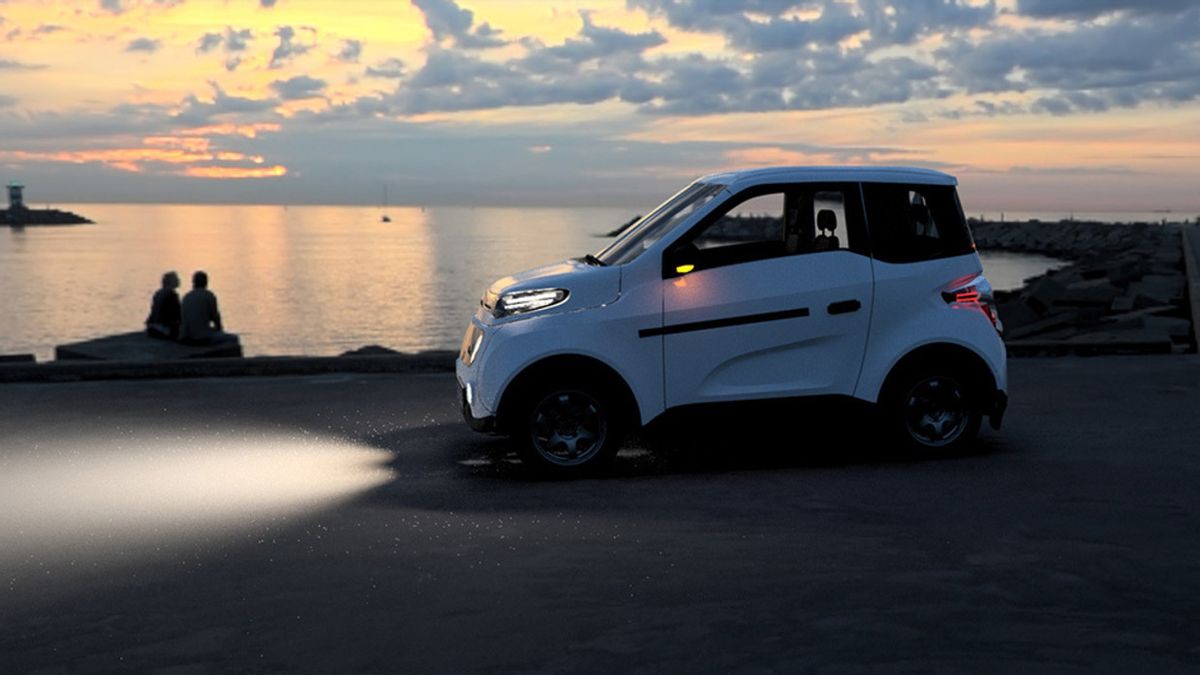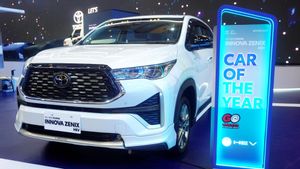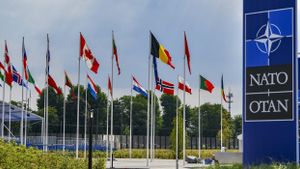JAKARTA - At the end of the race, Russia recently announced investments targeting the growth of electric vehicles (EVs) in a bid to catch up with the transition across Europe.
Russia is expected to start building its EV infrastructure, starting in Moscow. The city plans to install 200 EV charging stations annually, starting in 2021, until there are 600 built by 2023.
"There are about 2,000 (electric) cars in Moscow now and the number is increasing every year by about 10-15%. The charging infrastructure must emerge in order to grow more," the head of the city's transport department, Maxim Liksutov, told RT.com
In the next decade, the city will also see public transport turning to electricity. Mosgortrans, owner of the city's bus and tram network, intends to increase its electric bus fleet from 600 to 1000 by the end of the year. They are targeting 2,000 electric buses to replace the existing petrol and diesel-fueled fleet by 2024.
However, Russia is far behind other European countries in terms of the EV array of electric cars, with only 11,000 electric cars registered across the country, compared to 1 million across the European Union in 2019. However this figure is expected to increase in recent years. future, anticipating 1,000 EVs to be sold in Russia in 2021, and expecting this number to double each year in the following years.
This decision comes just weeks after reports that Russia has introduced a new state program, which will see an investment of US$11 billion in the development of EV transport. This is about double the pre-determined funding for the program.
Most of the funding for the program will come from the introduction of a tax on the sale of traditional-fuel cars as well as two new tariffs on imports of foreign electric vehicles.
Under the program, Russia expects to produce 3,000 by 2022, growing to produce 217,000 EVs annually by 2030. Russia does not currently produce electric cars, meaning there is significant potential to develop part of the country's strong automotive sector. .
Russia's auto industry is an important part of the country's economy and employment, with more than 600,000 workers, or 1% of the workforce, working in the sector. Russia continues to be the fifth largest car market in Europe with a production rate of 3.1 million vehicles annually. This puts it in a strong position to transition to EV manufacturing in the years to come.
Though late, Russia could have a competitive advantage over other European manufacturers with cheaper EVs available to consumers. The anticipated Terra Zero Emission Transport asset, or Zetta, is estimated to cost just $6,100, making it cheaper than many alternatives and less than Germany's EV subsidy scheme, theoretically giving consumers a free car.
“The leading automaker, globally and in Russia, is announcing a new line of electric vehicles. Many of them plan to stop making internal combustion cars by 2030. Then in the next 20-30 years everyone will switch to electric vehicles,” said Ruslan Edelgeriev, climate adviser to President Putin.
Private companies are also “crazy” in buying EVs as Russian engineering firm L-Charge has announced that it will provide on-demand mobile charging for electric cars via an app, which allows EV owners to charge all over Moscow. If successful, the company plans to expand to Paris, Berlin, New York, Amsterdam, and London. This could be the first of many private initiatives if Russia succeeds in its EV manufacturing and uptake plans.
While Russia is not yet known for its innovation in EVs, significant investment, willingness to make changes, and the country's automotive manufacturing know-how and low costs can give it a competitive advantage as it catches up with Europe.
The English, Chinese, Japanese, Arabic, and French versions are automatically generated by the AI. So there may still be inaccuracies in translating, please always see Indonesian as our main language. (system supported by DigitalSiber.id)













